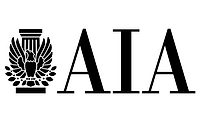AIA Adopts New Rules and Ethical Standards for Members

Washington, D.C. -- The American Institute of Architects’ (AIA) board of directors recently approved several changes to the AIA Code of Ethics and Professional Conduct to explicitly address sexual harassment, equity in the profession, and sustainability.
The Code of Ethics and Professional Conduct applies to all AIA members. The code’s ethical standards are aspirational and define the tenets of ethical behavior for AIA members. The code also includes disciplinary rules, which are mandatory and enforceable. Violations of the rules may result in sanctions, including termination of membership.
“The architecture profession is at a threshold moment,” said Carl Elefante, AIA 2018 president. “The Board’s adoption of these changes provides us with another step toward ending sexual harassment in the workplace, advancing equity in our profession, and promulgating sustainable practices. I applaud the members who raised their voices to offer these improvements to the code, and the AIA delegates, board of directors, and National Ethics Council who acted on their concerns.”
The new rules and ethical standards resulted in part from resolutions presented and adopted by delegates at the annual meeting of the Institute in connection with the 2018 AIA Conference on Architecture. The AIA National Ethics Council, in consultation with the board committee on equity and the future of architecture, made recommendations to the AIA board of directors, which it adopted.
Several existing rules were updated in the Code of Ethics to include language explicitly addressing harassment and equity in the profession. And at the recommendation of the national ethics council and the new england committee on the environment, new rules and ethical standards were also added to the Code of Ethics to address sustainability. An updated copy of the Code of Ethics and more information on the national ethics council can be reviewed on AIA’s website.
AIA recently released a statement, “Where We Stand: Sexual Harassment & the Architectural Profession,” detailing the Institute’s commitments to combating harassment in the workplace and to making the profession more equitable and inclusive:
“We, the members of the American Institute of Architects (AIA), stand together to reshape our profession: to confront those who make the workplace intolerable through harassment and abuse; to give voice to those whose voices are stifled for fear of retaliation; to resolve systemic inequities in our profession that block full access by many who seek it; and to break down cultural, ethnic, racial, and gender barriers that prevent our profession from reflecting the society it serves,” said the statement. “AIA acknowledges that the architectural profession has not yet attained the workplace culture that is required. While AIA has made significant progress in recent years in addressing these issues, we must redouble our efforts.”
For more information, visit www.aia.org.
Looking for a reprint of this article?
From high-res PDFs to custom plaques, order your copy today!




